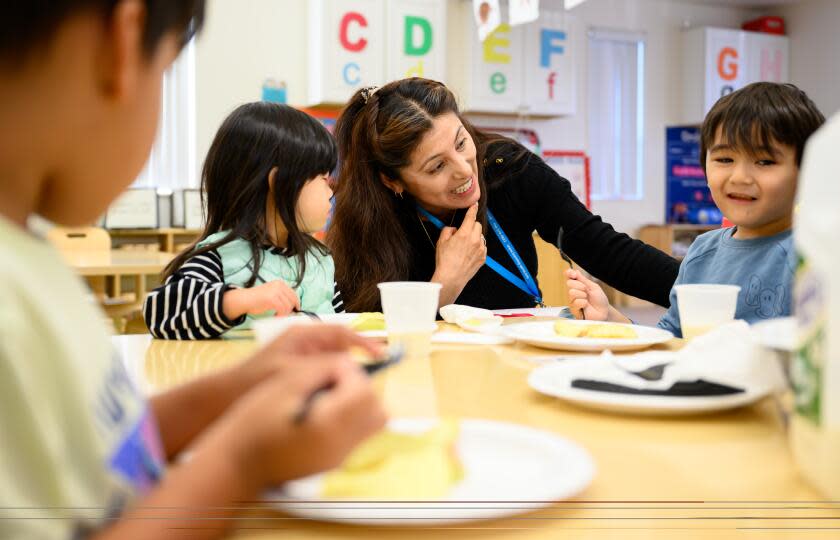Letters to the Editor: Why preschool teachers are the backbone of our economy

To the editor: When I turned 18, I went to work as a classroom aide in a federally funded state preschool. At first, I shadowed some very qualified teachers who made keeping 3-year-olds on task look effortless. ("Biting, kicking, hurling blocks. Preschools struggle with California law limiting expulsion," Dec. 4)
One day, the teacher I was working with needed to leave our table for a restroom break. As soon as she left, havoc ensued. Like dominoes falling, the activity fell apart.
I felt helpless. When the teacher returned, the students hushed and quickly took their seats.
People who work in preschools have rare skill sets. They use communication strategies suited for children too young to reason. They are patient. They never escalate a situation. They can turn on a dime.
When I worked at the preschool, there were occasional biting and hitting incidents. Calling parents to pick up their children early — in effect, asking these parents to leave work early — was a last resort. In that sense, childcare workers are the backbone of our economy.
The preschool years set the stage for the rest of a person's life. In this time, children learn how to deal with personal challenges in a productive manner. The importance of child care workers cannot be overstated.
Karen Neville, Palm Desert
..
To the editor: "Hitting and kicking are commonplace" in preschool, according to your article. Where do the kids learn this behavior?
When I was an administrator in the Los Angeles Unified School District, I once received a call on the first day of school from one of our preschool teachers. Fifteen minutes into the day, a 4-year-old boy had punched another child in the back of the head.
I called the parents and kept the boy in my office because I determined there was a threat to the safety of the other children. When the couple arrived, I explained what happened and on a hunch asked, "Where does he see this hitting?"
The parents admitted they were seeing a counselor about their own violent relationship.
No child is born with the innate desire to punch someone. They learn this behavior from those who raise them and, yes, from violence in games and the media.
The child was not suspended. Our counselor got involved immediately, and we figured out a way to safely reintegrate the child into school.
Your article notes the "lingering stress of the pandemic" as an explanation for an increase in bad classroom behavior. Really? By 3-year-olds?
This is learned behavior, and a virus didn't teach it.
Kirk Jordan, Long Beach
This story originally appeared in Los Angeles Times.

